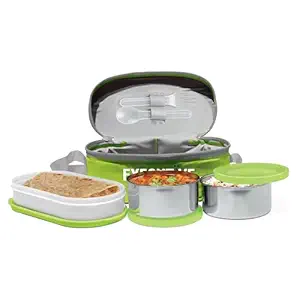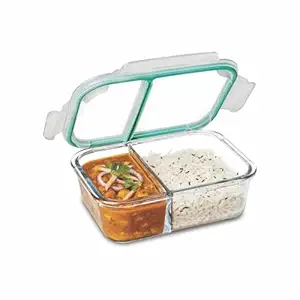Lunch Box: An Essential Companion for Daily Meals
A lunch box is an essential item for people of all ages, providing a convenient and practical way to carry homemade meals. It ensures that individuals can enjoy fresh, nutritious, and hygienic food anytime, whether at school, work, or during travel. A well-packed lunch box not only helps maintain a balanced diet but also promotes a healthier lifestyle by reducing reliance on fast food and processed meals. Modern lunch boxes come in various designs, materials, and sizes, catering to different needs. Stainless steel lunch boxes are durable, eco-friendly, and free from harmful chemicals, making them a popular choice for health-conscious individuals. Plastic lunch boxes, especially BPA-free ones, are lightweight and affordable, while insulated lunch boxes help retain food temperature for hours, keeping meals warm or cold as needed. An ideal lunch box should have multiple compartments to store different food items separately, ensuring that flavors do not mix. Leak-proof designs with secure locking systems prevent spills and make it safe to carry liquid-based foods like soups and curries. Using a lunch box offers multiple benefits, including cost savings, as homemade meals are more affordable than restaurant food. Additionally, it helps reduce environmental waste by minimizing the use of disposable packaging. Packing a well-balanced lunch with proteins, fiber, and essential nutrients ensures sustained energy levels throughout the day. With proper planning and meal preparation, a lunch box becomes an invaluable tool in promoting a healthier, more sustainable, and budget-friendly eating habit.
MILTON Pro Lunch Box with Steel Cutlery, 3 Microwave Safe Inner Steel Containers (180ml, 320ml, 450ml) Plastic Chutney Dabba 100ml, Steel Bottle 750ml with Insulated Bag, Office Tiffin, Black
Key Features of a Good Lunch Box
- Material and Durability: Stainless steel lunch boxes are eco-friendly and long-lasting, while BPA-free plastic options are lightweight and affordable.
- Insulation: Insulated lunch boxes keep food warm or cold for extended periods, making them ideal for people with long commutes.
- Compartments: Multi-sectioned lunch boxes help organize different food items, preventing mixing and ensuring portion control.
- Leak-Proof Design: A secure locking system prevents spills, making it safe to carry liquids like soups or gravies.
Benefits of Using a Lunch Box
- Healthier Eating: Home-packed meals are nutritious and free from unhealthy additives.
- Cost-Effective: Bringing lunch from home reduces spending on expensive restaurant meals.
- Eco-Friendly Choice: Reusable lunch boxes reduce waste from disposable packaging.
Tips for Packing a Nutritious Lunch
- Include a balanced mix of proteins, carbohydrates, and vegetables.
- Use airtight containers to keep food fresh.
- Pack a variety of meals to avoid monotony.
A well-chosen lunch box is not just a food container but a step towards a healthier and more organized lifestyle.
Conclusion
The humble lunch box, far from being a mere container, plays a crucial role in our daily lives. It’s a portable microcosm of sustenance, offering not just nourishment, but also a sense of comfort and control over our meals. Beyond its practical function of transporting food, the lunch box represents a personal choice, a reflection of dietary preferences and lifestyle. Whether it’s a simple, functional box for daily work or an elaborate, insulated container for a picnic, it empowers us to maintain healthy eating habits, reduce food waste, and save money. In a fast-paced world, the lunch box provides a moment of pause, a reminder of home, and a tangible link to well-being. Ultimately, it symbolizes the importance of mindful eating and the small, yet significant, act of caring for ourselves.





